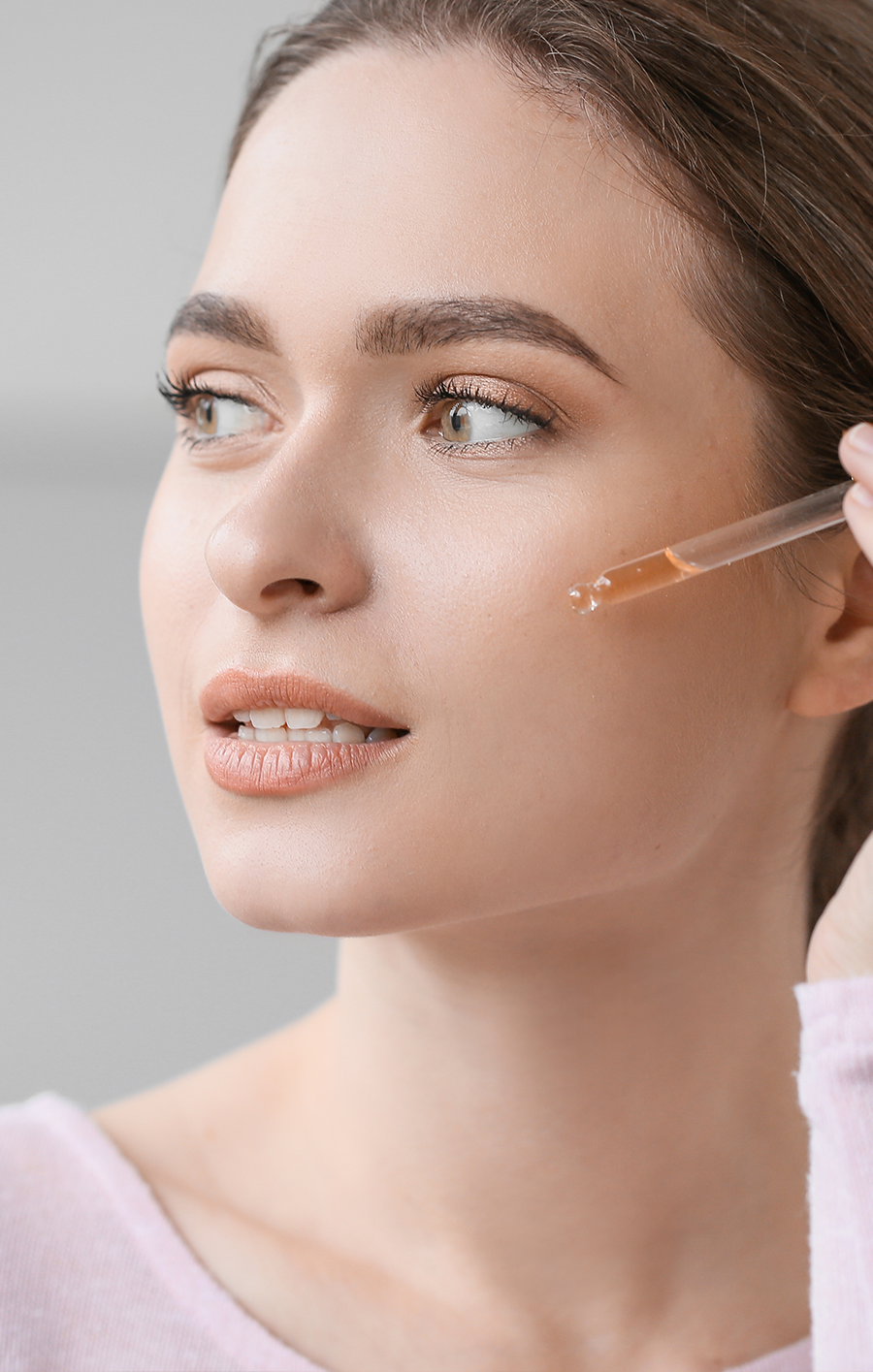Why is My Skin Suddenly Sensitive? 3 Possible Causes + Tips to Help
If you’ve never experienced sudden skin issues such as dryness, redness, flushing, bumps, and rashes—consider yourself very lucky. For the rest of us, dealing with these skin concerns that seemingly occur out of the blue can be challenging. The causes could be almost anything, so how can we know what we are dealing with and what to do to soothe these issues?
Here at Dermsilk, we believe that knowledge is the key to solving nearly all of your skincare concerns. This is why we’ve taken the time to investigate what conditions can trigger sensitive skin issues and what you can do to calm and heal your skin. We’d like to share what we learned so you can educate yourself and be prepared for the next time your skin is “suddenly sensitive.”
What Are Indicators of Sensitive Skin?
It’s important to understand that sensitive skin isn’t a skin type (the skin types are normal, dry, oily, and combination) but rather, it a skin condition. Skin conditions can sometimes be hard to diagnose and are caused by many factors.
Let’s explore the hallmark symptoms of sensitive skin conditions:
-
Dryness, redness, itching, and flakiness are common signs of dry skin, a frequent issue. These symptoms can also indicate signs of contact dermatitis, eczema, and psoriasis; all of which should be accessed by a dermatologist.
-
Rosacea is another common condition that leads to hypersensitive skin. Redness, flushing, small bumps, and visible blood vessels are rosacea symptoms. This is another sensitive skin condition that could benefit from professional consultation, if severe.
-
Reddened, irritated, and itchy skin, sometimes accompanied by acne or break-outs, can signify that our skin barrier has been damaged. Damaged skin barriers are stripped of the protective oils that help keep irritants and germs out and our skin hydrated.
What Can Cause Sensitive Skin?
Sensitive skin conditions can be triggered by external factors, the time of the year (the seasons), and what stage we are at in our life cycle. Let’s look at these three categories and see how each can lead to sensitive skin conditions.
1. External Factors
Items in this category can be environmental and include soaps and detergents, pollution, mask-wearing, harsh skincare products, and sun exposure. Medications can also cause your skin to be super-sensitive.
Other external factors can also be lifestyle-related, such as your diet, unhealthy stress levels, your skincare routine, and over-cleansing or over-scrubbing being huge factors.
2. Seasonal Change
Each season brings with it a whole host of environmental changes our skin needs to adapt to:
- Temperature
- Sun Intensity
- Humidity
- Wind
What this means for your skin is that these constantly changing factors can stress your skin and cause it to suddenly change from being healthy one day to being extra sensitive the next.
3. The Skin Life-Cycle
Depending on what stage of life you are in can also significantly affect your skin sensitivity. Each skin cycle has its challenges, and if you are aware of these challenges, you can make adjustments to keep your skin healthy and fit. Here’s a look at the primary stages:
-
Newborn Skin- at this stage, a baby’s skin is undergoing great change as it adapts to a new environment and will be especially sensitive.
-
Adolescent Skin- Many teens battle acne and pimples, using harsh products that strip away the natural barrier making the skin defenseless and sometimes, hyper-sensitive. Hormonal imbalances play a large part in acne flare-ups during this cycle. An excellent treatment for acne-prone skin that is gentle and effective is Obagi CLENZIderm M.D. System, great for all age groups.
-
Hormonal Influenced Skin- Pregnancy, menstrual cycles, and the stages of menopause can affect oil production and create hormonal fluctuations that can cause hyperpigmentation, redness, flushing, acne, and extremely sensitive skin.
-
Maturing Skin- As we age, our skin thins, oil production decreases, and we are depleted of valuable nutrients (collagen and elastin) that keep us looking youthful. These depletions, along with thinning, can make our skin more sensitive.
How to Care for Sensitive Skin
The best way to care for sensitive skin is to be aware of the items that can affect your skin and create strategies to deal with these stressors. For example, newborn skin will be sensitive due to a change in environment and choosing gentle products can help keep your baby’s skin healthy and balanced. On the other hand, mature skin could be sensitive because of the natural hormonal cycles, the pollution in our environment, sun exposure, underlying conditions, etc. The strategy for addressing the various causes of skin sensitivity is vastly different.
Choosing Skincare for Sensitive Skin
When shopping for treatments for sensitive skin, an essential consideration is to choose quality skincare products with high concentrations of active ingredients with proven efficacy, all with a gentle combination designed not to irritate even the most sensitive skin.







Leave a comment